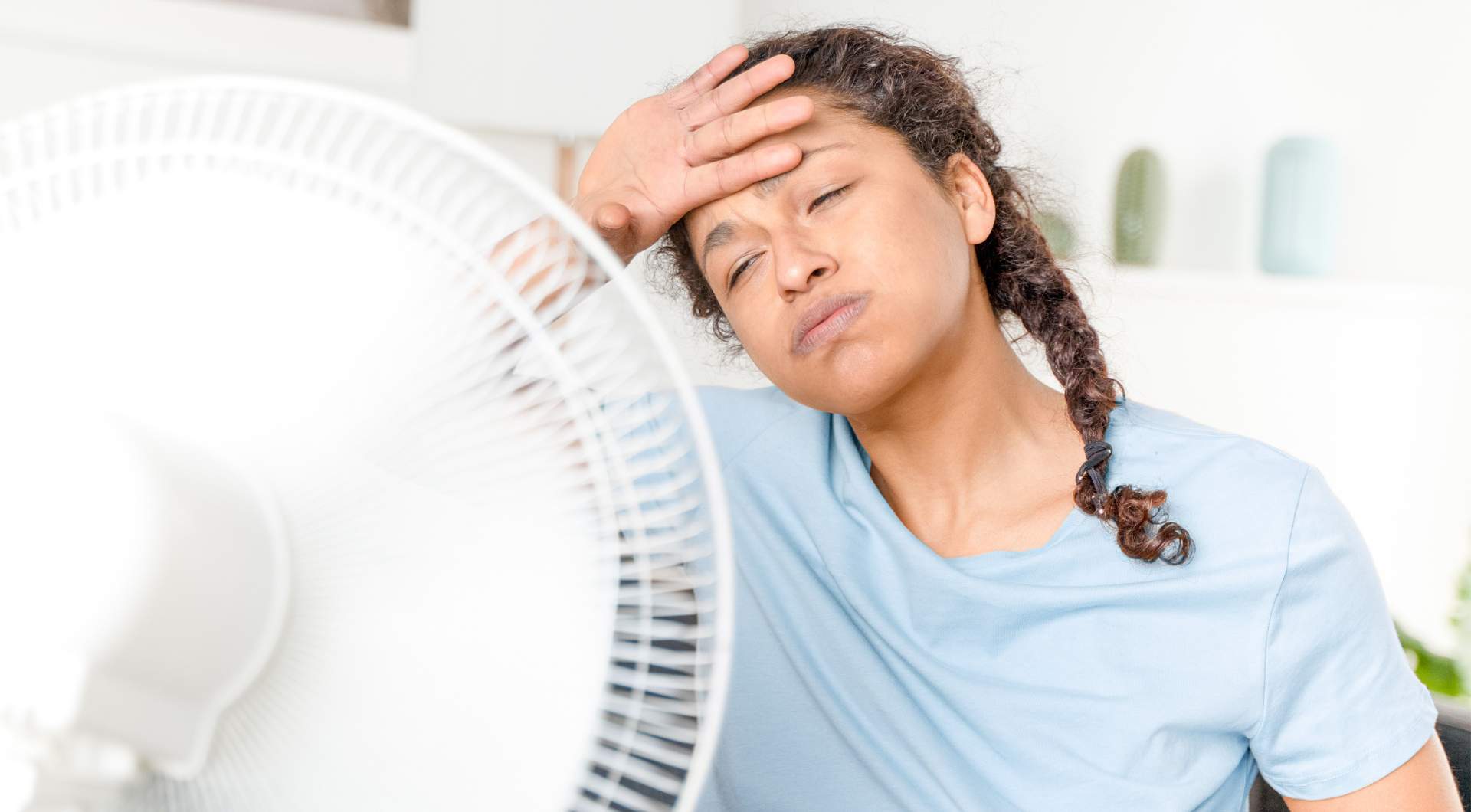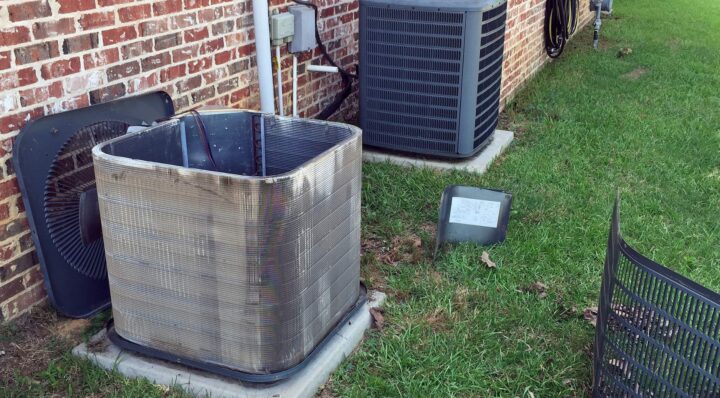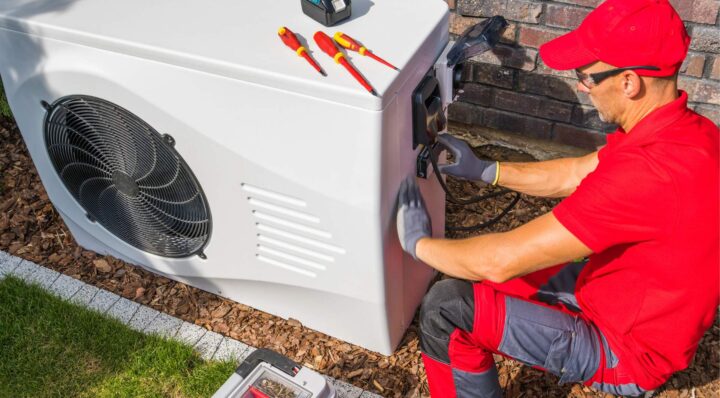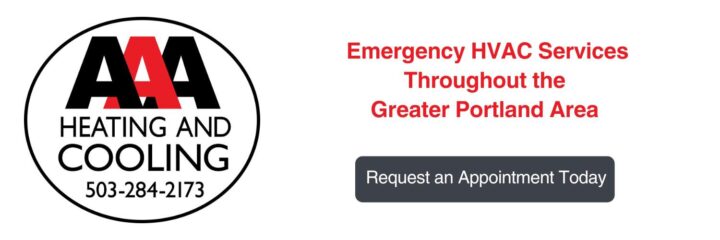
Your AC just gave up on the hottest day of summer.
Your furnace sounds like it might be possessed
Your thermostat is flashing numbers like it’s trying to signal aliens.
If you’ve been unfortunate enough to experience any of these scenarios, you likely stood there wondering, “Is this considered an HVAC emergency … or is it just another Tuesday?”
While not every strange noise or unexpected temperature shift means your HVAC system is on the fritz, some issues definitely require immediate attention.
But how do you know which ones?
Here, the professionals at AAA Heating and Cooling break down when to keep your cool, when to sweat it, and what truly constitutes an HVAC emergency.
Table of Contents
- What Is Considered an HVAC Emergency?
- Tips for Troubleshooting Before Calling the HVAC Professionals
- 5 Common HVAC Emergencies
- Commonly Asked Questions About HVAC Emergencies
- AAA Heating and Cooling: Commercial and Residential Emergency HVAC Repair in Portland and Beaverton
What Is Considered an HVAC Emergency?
HVAC emergencies can present in a variety of ways, including:
- Diminished or absent heating power
- Lack of electrical power to your heater or other appliances
- A noticeable water leak
- Unusual odors, like rotten eggs or burning smells
- Unusual sounds coming from the furnace or air vents
Tips for Troubleshooting Before Calling the HVAC Professionals
If you find your HVAC is acting up, here are a few things to try before calling the professionals:
- Ensure the thermostat has power and is set correctly.
- Check the circuit breaker and reset if needed.
- Replace or clean air filters if airflow is restricted.
- Inspect vents for blockages.
If these don’t solve the issue and the system still isn’t working, it’s time to call an HVAC technician.
Pressing HVAC troubles can not only be a nuisance, but they can also present serious problems to your home or business. Luckily, the HVAC maintenance pros at AAA Heating and Cooling can help diagnose and remedy your problems. Reach out today.
5 Common HVAC Emergencies
#1: Clogged Condensate Line
A majority of HVAC service calls are about air conditioning leaks, and the most common cause of leaks is a clogged condensate line.
The condensate line collects excess moisture and moves it outside to prevent damage to your HVAC system. This line can become clogged with dirt, algae, and rust, preventing water from evacuating the system properly, leading to leaks. While the leaks generally start off small, they can cause serious water damage if not taken care of early on.
To ensure your condensate line is functioning at its highest efficiency, it’s important to schedule routine maintenance before any major leaks occur.
#2: Frozen Outdoor Unit in the Winter
It’s common to have trace amounts of frost on your outdoor unit during the colder, winter months. However, if your unit is covered in ice for an extended period of time, it can cause long-lasting damage.
When there is ice build-up, either internally or externally, it can be indicative of a poorly functioning defrost cycle on your machine. Causes for this may include things like a bad fan motor or low refrigerant charge.
If you notice your HVAC unit has completely iced over, it’s best to call your local HVAC contractor.

#3: Frozen Coils in the Summer
Frozen coils during the summer occur when the refrigerant temperature is below 32 degrees, causing the surrounding air to condense and freeze.
There are several factors that cause the refrigerant temperature to become so low, including:
- Running the A/C when it’s below 60 degrees outside
- Setting the thermostat too low
- Blocked airflow
- Refrigerant leaks
To avoid an unexpected HVAC emergency, your residential HVAC installers recommend that homeowners keep their A/C set to at or above 70 degrees.
#4: Blown Fuses and Tripped Breakers
If your HVAC system’s blower is overworked, it can cause blown fuses and tripped circuit breakers.
If the airflow is blocked due to a dirty air filter, it can put stress on your blower, causing it to overuse energy, which results in tripped breakers.
To keep an emergency from happening, schedule an appointment with your HVAC installer to perform a routine air filter checkup.
#5: Malfunctioning Furnace
Furnace problems can be the result of a variety of factors, including:
- A malfunctioning thermostat
- Controller issues
- Cracked heat exchangers
- Dirty filters
If you notice a scraping sound or other atypical noises coming from your furnace, the ball bearings or belts might be failing. A yellow, flickering pilot light could indicate excess carbon monoxide.
If you are experiencing any furnace-related issues, we recommend scheduling an appointment with a technician as soon as possible.
To prevent minor problems from morphing into major emergencies, have your furnace regularly serviced by an HVAC professional like AAA Heating and Cooling. We’ll keep your furnace running in tip-top shape, helping you save on costly repairs down the line.
Commonly Asked Questions About HVAC Emergencies
What Should I Do if I Think I Have an HVAC Emergency?
The first step of action is to stop the damage from getting worse by:
- Shutting down the power
- Turning off the heater or water main
Call an HVAC contractor if the problem:
- Continues after shutting off power, water, or heat
- Presents any immediate danger (such as smoke or sparks)
- Affects your ability to go about your daily personal or professional activities
Is It Considered an HVAC Emergency if My AC Quits in the Middle of a Heatwave?
Absolutely!
Excessive heat is dangerous for anyone, but especially young children, elderly individuals, and people suffering from medical conditions.
If your air conditioner quits, call an HVAC professional immediately to avoid heat-related health risks.
Is It an HVAC Emergency if I Smell Gas Coming From My Furnace?
Definitely.
If you smell gas anywhere in your home or office, exit immediately and call your utility provider from a safe location.
Do not turn on any lights or appliances.
Once the gas company confirms it’s safe to return, contact an HVAC technician to inspect and repair the issue.
Is It Considered an HVAC Emergency if I Have a Clogged Air Filter?
A severely clogged HVAC air filter has the potential to:
- Restrict airflow
- Overheat the system
- Cause your unit to shut down
While a clogged air filter isn’t always an emergency, it can lead to costly damage if ignored.
Always check and replace filters regularly to prevent system failure.
If I Have an HVAC Emergency, How Quickly Can a Technician Arrive?
Most HVAC companies provide 24/7 emergency service and can often have a technician on site within 1–3 hours, depending on your location and the weather conditions.
Are you experiencing an HVAC emergency? AAA Heating and Cooling has technicians ready and waiting to assist. Reach out today.

AAA Heating and Cooling: Commercial and Residential Emergency HVAC Repair in Portland and Beaverton
If you think you are experiencing an HVAC emergency, call the trusted professionals at AAA Heating and Cooling. We offer 24-hour emergency service and repair for your urgent situations.
Are you looking to schedule routine maintenance to keep your system running smoothly? Contact us today!
